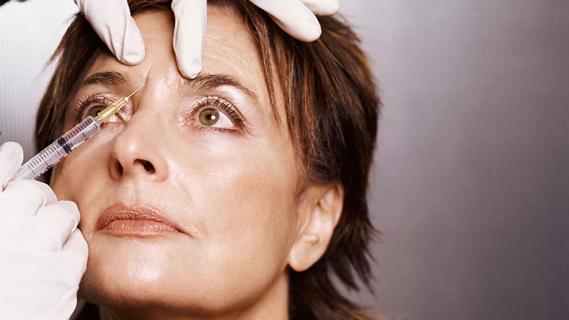What to expect from the procedure

For women with very large breasts, having a reduction can feel like — quite literally — having a weight lifted off of their chest.
Advertisement
Cleveland Clinic is a non-profit academic medical center. Advertising on our site helps support our mission. We do not endorse non-Cleveland Clinic products or services. Policy
It can relieve them from years of back, shoulder and neck pain; difficulty exercising; and rashes on their chest — not to mention limited clothing options and permanent shoulder grooves from weighted down bra straps.
But, like any other medical procedure, breast reduction surgery does have risks. It’s a personal decision that requires careful consideration of the potential pros and cons.
Start with these need-to-knows from plastic surgeon Steven Bernard, MD.
A number of studies have found that women who have breast reduction surgery commonly feel a boost in their self-esteem, body image and physical health afterward.
“It has one of the highest satisfaction rates of all the procedures we do,” Dr. Bernard says.
In one study, 95% of patients said they felt satisfied with the results.
The surgery itself is an outpatient procedure that only takes about three hours, Dr. Bernard says. Women typically go home on the same day or the next morning. But you’ll likely feel tired and sore afterward, so plan to take a few days off from work or school to recover. You’ll be encouraged to get up and move around regularly, but you’ll have to put off any kind of rigorous exercise for about a month, he says.
How much your breasts can be reduced depends on your size, breast composition and goals. During your consultation, your plastic surgeons will help you determine the best plan. Most breast reduction patients go down one to two cup sizes, Dr. Bernard says.
Advertisement
The procedure is actually a twofer: Your surgeon will remove excess tissue and skin to make your breasts smaller, and then move the nipples up in position to give them a lift.
The incision wounds (they usually look like lollipops that circle around the nipples and go straight down to the bottom of the breast) will be swollen for a while. “In most people, the scars improve significantly within a year after surgery, but they’re always there,” Dr. Bernard says.
“With scars, it’s just as much genetics as anything. Every plastic surgeon can do good job of closing a wound, so it just depends on the person.”
Immediately after surgery, your nipples might feel numb. “Some sensation in the nipples almost always comes back, but it might take a month or two,” Dr. Bernard says. Certain surgical techniques are more likely to preserve nipple sensation, so be sure to bring this up to your surgeon if it is a concern for you.
Some insurance companies cover part or all of the cost of breast reduction surgery if you’re having it to relieve physical problems like back pain or skin problems. Your surgeon can help you gather the necessary information and measurements to send to the insurance company before surgery. It usually takes about a month for them to approve or deny the request, Dr. Bernard says.
There’s about a 50/50 chance that a woman might find it difficult — but not necessarily impossible — to breastfeed if she has a breast reduction, Dr. Bernard estimates. “But it’s hard to predict who might have that problem,” he says.
Start by setting up a consultation with a surgeon who is board certified by the American Board of Plastic Surgery at a reputable medical center near you.
Ask the surgeon for before and after photos of past patients with a similar body type as you, and inquire about his or her experience performing the operation. “Even new plastic surgeons have had pretty good experience during their residency,” Dr. Bernard says. “It’s one of the most common things we’ve done.”
Advertisement
Learn more about our editorial process.
Advertisement

Bleeding is a risk and warrants taking care, but the reward of this lifesaving medication is great

Severe and debilitating headaches can affect the quality of your child’s life

With repeat injections over time, you may be able to slow the development of new wrinkles

Although it can be alarming, it’s normal to experience blood clots during menstruation

Stretch before heading outside, keep proper form and avoid jerking or twisting to throw snow

Type 2 diabetes isn’t inevitable with these dietary changes

Applying a hot or cold compress can help with pain